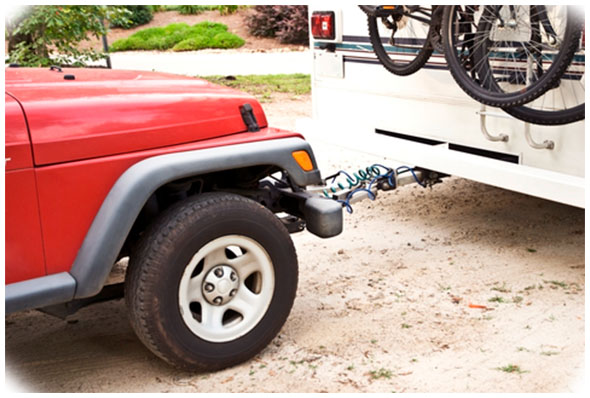Towing a car is a great way to move it from one place to another without having to drive it yourself. It can be a convenient and cost-effective method of transportation for long-distance moves, or for hauling extra vehicles. But does towing a car add miles? Many factors can impact the mileage of your vehicle after you’ve towed it.
Factors That Can Impact Mileage after Towing a Vehicle
When it comes to towing a vehicle, the type of tow can have a significant impact on the mileage of the towing vehicle. There are two main types of towing: flat towing (also known as dinghy towing) and trailer towing.

Trailer Towing: Trailer towing involves towing a vehicle by using a trailer or a tow dolly. The towed vehicle is loaded onto the trailer or dolly, and its wheels are off the ground. When towing a trailer, the additional weight and wind resistance can significantly affect the mileage of the towing vehicle. The increased weight places a greater strain on the engine, requiring more power and fuel to maintain speed and overcome resistance. As a result, the mileage of the towing vehicle tends to decrease when towing a trailer.
Other factors that can impact mileage after towing a vehicle include:
Weight: The weight of the towed vehicle and the trailer itself can have a direct impact on fuel efficiency. Heavier loads require more energy to move, which can result in decreased mileage.
Aerodynamics: The shape and design of the trailer can affect the aerodynamics of the towing setup. Poor aerodynamics, such as a trailer with a high frontal area or inadequate streamlining, can increase wind resistance and decrease fuel efficiency.
Terrain: Towing on hilly or mountainous terrain can put additional strain on the towing vehicle’s engine, causing it to consume more fuel. Uphill climbs require more power, while downhill descents may necessitate additional braking and fuel usage.
Driving Habits: Aggressive driving, such as rapid acceleration or excessive braking, can negatively impact fuel efficiency. Maintaining a steady speed and practicing smooth driving techniques can help mitigate the impact on mileage.
Proper Maintenance for Your Vehicle After It Is Towed
After towing a vehicle, it is important to perform regular maintenance to ensure the continued health and performance of your vehicle. Regular oil changes, tire checks and rotations, and checks of the brake system can help keep your vehicle running smoothly. Also, if you’re frequently towing, it would be beneficial to understand the mid size truck towing capacity to ensure you’re not overburdening your vehicle. It is also advisable to check all electrical components and any other parts that require routine maintenance.
Conclusion
Towing a car can add mileage, depending on the type of tow used and other factors such as weight, aerodynamics, terrain, and driving habits. However, proper maintenance of your vehicle after it is towed can help keep it running smoothly and efficiently. By following these tips, you can ensure that you get the most out of your vehicle after towing it.


Add Comment